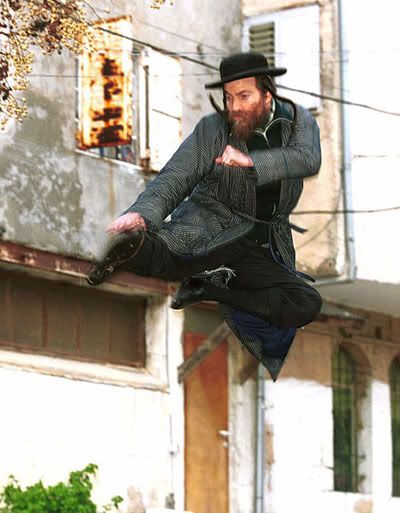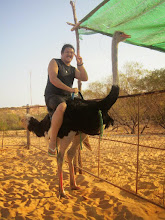Tschann Song und das Westlische Schaulinnkloster
禪宗和西少林寺 (Chánzōng hé Xi Shàolínsì)
By Liang Sijie (Andrew Luong)
梁思捷寫
PROLOGUE
The Western Shaolin Monastery (Das Westlische Schaulinnkloster)
Modern Day
Heavy beads of sweat were dripping profusely from young Heinrich’s forehead; his entire body was trembling underneath the torturous afternoon sun. Heinrich’s legs failed him tremendously. His ankles were sore from dozens of ant bites. This kind of pain made him seriously doubt his desire to continue his training as a Schaulinn monk. Schifu was circling him and gazing like a hawk, ready to correct any flaws in Heinrich’s stance with a quick rap of his trusty cane.
It seemed to Heinrich that Schifu was a lot stricter towards him than any of the other monks. There were days where Heinrich felt like running away from this life as a monk. He wanted to return to his parent’s dairy farm. Even when he was living on the farm, Heinrich had always wanted to be a Schaulinn monk. He was inspired by Schaulinn Gong Fu, ever since he saw a group of monks practicing their techniques on a hill near the farm. Life on the farm had bored him almost to death. He had journeyed to the monastery and begged the Abbot many times to accept him as a student. When he was finally accepted, he was incredibly joyful.
However lately, he has felt that he has learnt nothing of value and that his martial arts progress has been excruciatingly slow. His doubts were beginning to inspire fond memories of the hum of the tractors, the fat docile cows, the windswept fields and his small homestead. He missed parents and his siblings. He missed home.
Just as he was experiencing one of these fond memories, a sharp pain suddenly shot up his spine, he could no longer bear the stance. As he was about to collapse, Schifu used his cane to promptly prod Heinrich hard in the chest.
Schifu remarked, “Ah ah, when everyone else finishes their training sets, you can finish here.” He then quickly proceeded to adjust Heinrich’s stance with his trusty cane, meanwhile instructing him with a soft but firm voice, “Knees bent, butt out, back straight, stomach clenched, thighs parallel to the ground and fists to the side.”
Heinrich was growing impatient. In his periphery, he saw his fellow monks in their stride, swift, powerful and uncompromising in their movements. He was angry at his own weakness. As he dropped his weight slightly, he received a received another prod to his chest from Schifu. Losing his temper momentarily, he blurted, “Every day, you make me perform this stupid horse stance, while I see everyone else learning real stuff, kicks and punches, useful techniques. You bring me out to this field for what?! So the mosquitoes can feast on me? So my head can be roasted by the sunshine?!”
Heinrich received another hard whack to his butt from Schifu for losing his temper. Schifu then raised his cane and pointed it at Heinrich’s face.
He then proceeded to lecture Heinrich, “Watch your temper, young man. This exercise may seem mundane and of no use to you. But should you give up and not master it, you will regret doing so. Learning how to kick and punch marvellously before building good balance with your stance is like building a magnificent palace on shifting sands. Without a good foundation, you will surely fail in your martial arts journey”
Heinrich was not very convinced by Schifu’s short lecture and admitted, “Schifu, I don’t know if I have what it takes to continue my journey. It’s too hard, I feel like I’m weaker than the others. I should have just stayed on the dairy farm. I feel like quitting sometimes.”
Schifu stopped pacing around Heinrich and in a stern voice responded to Heinrich with yet another short lecture, “I don’t want hear this sort of weakness from you. Do you forget that you begged the Abbot to allow you into the monastery? Quitting will make you and the Abbot lose face. Also, what is one thing that Schaulinn monks never do?”
Accepting Schifu’s words, Heinrich quietly answered, “Schaulinn monks never quit.”
Hearing the desired response, Schifu continued pacing. Schifu saw much potential in young Heinrich, even if Heinrich didn’t see it himself. Heinrich reminded Schifu of himself and his own early years at the monastery. He was determined to see Heinrich realise that potential. For that to happen, he knew that Heinrich needed extra motivation and encouragement from time to time. Schifu decided that today was one of those times and told Heinrich,“Correct. Now let me tell you a story, Heinrich. A story I think you’ll appreciate.”
Heinrich cheekily responded, “Okay! Does that mean I can sit and rest while you’re telling it to me?!”
WHACK! Heinrich received yet another sharp strike to his butt from Schifu’s cane. Schifu almost barked his command, “No! Stay in the stance!”
With Heinrich’s attention, Schifu commenced the story, “This story starts in a far far away place in the east called Dschong Gwoh…”
TO BE CONTINUED…
NOTES
Schaulinn= a transliteration for 少林, Shàolín.
Schifu= a transliteration for the Chinese term for “master/teacher/expert”, 師傅 Shīfu .
Dschong Gwo= a transliteration for 中國 Zhōngguó, in other words, China.
Horse Stance is a basic foundation stance that is shared across many Chinese martial arts.
http://en.wikipedia.org/wiki/Horse_stance
Thanks again, to Roger for the German translation and transliterations.
In this timeline/story, I also considered Tschann Vodschiausmus as the translated title for Chan/Zen Buddhism. Vodschiau being derived from 佛教, Fójiào . The German suffix “-smus” akin to “ism” in English. Shaolin Chan/Zen Buddhism would be the one of the first, if not the first, sects of Buddhism to enter Europe. Thus Chinese terminology might be used and transliterated. Eventually, I decided to go with Tschann Song easier to read and it is a lot catchier as well. That it is derived from the commonly used Chinese term for Chan Buddhism, 禪宗, Chánzōng .
Also Vodschiausmus wouldn’t make much sense, as 佛教 Fójiào already means Buddhism. So basically it’d be like saying Buddhism-ism.


No comments:
Post a Comment